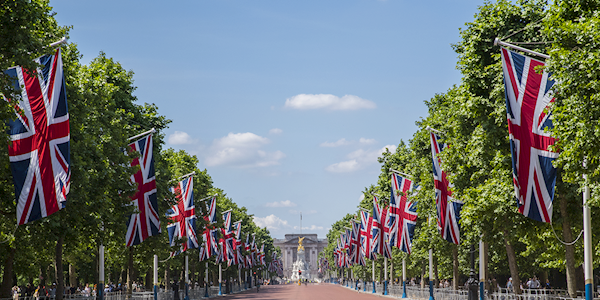Author: Andy Cotter

Events are a great way to bring local communities together, and we know many communities and organisations across the UK will be planning for this tradition breaking event, which will take place on the weekend of 6 May 2023.
The crowning of King Charles III is expected to be rooted in longstanding traditions and pageantry, which will allow for an opportunity for families and communities to come together across the country to join in and celebrate the rich culture and history of the UK by welcoming His Majesty to the throne.
Whether your local community is planning to participate in a celebratory procession through your city/town or planning a street party to celebrate the coronation in style, every local community and council will be able to play a part in this historical event.
Community events take a considerable amount of planning, and for events to be insured under the councils’ insurance policy, the council, a working party or a subcommittee of the council must be the sole organiser of the event.
With such a monumental event for the whole country and the first coronation in over 70 years since Queen Elizabeth II was crowned in 1953, we have produced a 12-point guide for the information that we would require for any event with more than 1,000 attendees.
- A full list of activities and who is responsible for them. All third parties must have their own public liability insurance evidenced to the council, for example: catering vans, inflatable bouncy devices, bands, and stalls that aren’t organised by the council. All permits and licences must be in place, especially if you are seeking road closures and, if required, the police and fire brigade should be notified.
- A risk assessment should be carried out and documented prior to the event. The location should be suitable for the event.
- There should be sufficient marshals for the number of people attending. Please note the risk assessment of the event will determine the marshalling.
- Is your event playing music? If yes, what type i.e., local brand, type of music. If the band is semi-professional/ professional, they will need their own public liability insurance in place.
- A qualified first-aider should be in attendance and they must have means to call the emergency services.
- Start and finish time of the event: If the event is for more than one day; how many days, start and finish time, security overnight.
- Will there be any electrics? If yes, how will it be generated? For example, if it is a generator, what is the security on the generator? If it is plugged into mains, will there be circuit breakers in place? Will the cables be covered with matting and is there a contingency plan for wet weather?
- Will there be a beacon? If the beacon is a basket type attached to a building or a pole, a risk assessment should be undertaken to ensure the public is kept at a safe distance and there is no danger of the flames or hot particles affecting nearby proprieties or vehicles. If the beacon will be a bonfire type, cover is subject to the council providing their insurers with a copy of their risk assessment to approve at least 14 days prior to the event. The bonfire site should be at least 75 metres away from property or vehicles which are not owned, hired or rented by the council. If this is an issue, you will need to seek your insurer’s approval before cover can be confirmed.
- If you need loss and damage cover for hired equipment such as generators, toilets or lighting, we will need to know the sum insured required, the duration of the hire, security arrangements and storage details.
- Upon referral to Gallagher, stalls run for no financial gain by local people or groups who do not have their own public liability insurance in place may be covered under the policy. The council must take responsibility for the risk assessment, and health and safety of the stall. The council should be aware that if a claim occurs then it would be defend under the council’s policy and this may affect the terms and conditions at the next renewal.
- If the council is responsible for a BBQ, then it must be placed where people cannot walk into it, firefighting equipment must be in place (sand/water) and the food must be kept chilled until it is cooked.
- If the council is organising a tug-of-war, they must ensure that all competitors are wearing suitable clothing and footwear, and are using the correct type of rope.
If you require event cancellation cover please contact us for a quote.
For more information about how we can help you with your insurance requirements, for a no-obligation quotation, or to find out more about the services we offer, please get in touch.



